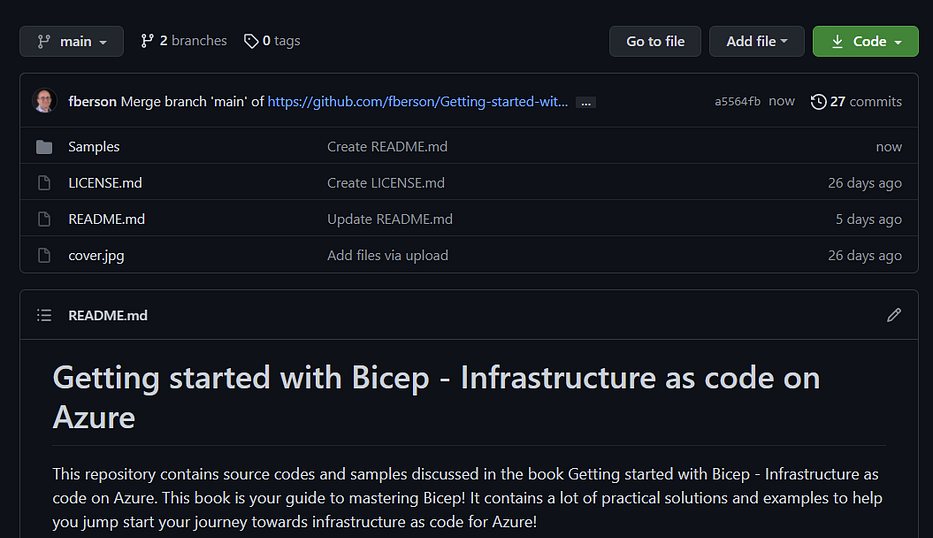Happy to announce my new book: Getting started with Bicep : Infrastructure as code is now available on Amazon both in kindle and paper back!
I’m extremely honored and thankful that both Mark Russinovich and Alex Frankel wrote on introduction to this book! Thank you so much for taking the time! A huge thank you to Kristin Griffin, Esther Barthel and Marcel Eeken who reviewed the book and provided great feedback! I could not have done this without you! And finally, a big thanks to Stefan Ivemo who authored a great guest chapter covering his community project, a PowerShell module for Bicep!

Description:
Infrastructure as Code is crucial to becoming successful in the Azure Cloud. Azure Resource Manager allows you to create resources in Azure in a declarative way. For many years we have been using ARM Templates to declare resources in a JSON format. Although ARM Templates are very powerful, the implementation of the JSON language is hard to read, maintain and debug. Bicep, a Domain Specific Language, overcomes these issues by providing a transparent abstraction layer on top of ARM and ARM Templates. This significantly improves the authoring experience. Bicep is easy to understand at a glance and straightforward to learn regardless of your experience with other programming languages. The book starts with some history and background in Infrastructure as Code and ARM Templates. It continues by explaining Bicep and providing guidance on how to get started. After the introduction, you will start your journey by understanding the syntax of Bicep. You will start by learning the basics first and you will gradually dive deeper in the more advanced scenarios. The book also contains a dedicated chapter on a big real-world example which provides you with great insights on how to leverage Bicep for production usage. Part of this book is also the Bicep playground, visualizer and a PowerShell module for Bicep provided by the community. Sample code used in this book is available on a dedicated GitHub repository.
What you will learn:
- How to get started with the Bicep CLI and VSCode Extension
- Deploying Bicep files to Azure, including template specs
- Understanding the Bicep file structure
- How to use the basic concepts of variables, parameters, tags, decorators, expressions, and symbolic names
- Getting familiar with more advanced topics like dependencies, loops, conditions, target scopes, modules, and nesting
- Leveraging features like snippets, scaffolding, and linter that support you while authoring Bicep templates.
Dedicated GitHub repository:
Part of this book is a dedicated GitHub repository containing the sample code that is used throughout the book.


No comments:
Post a Comment